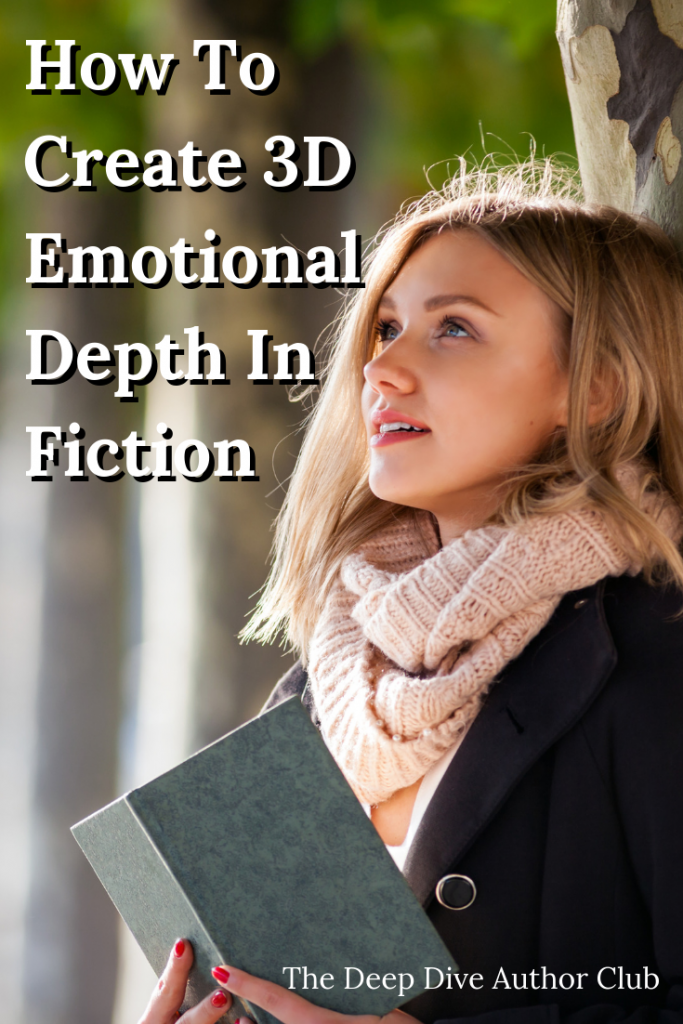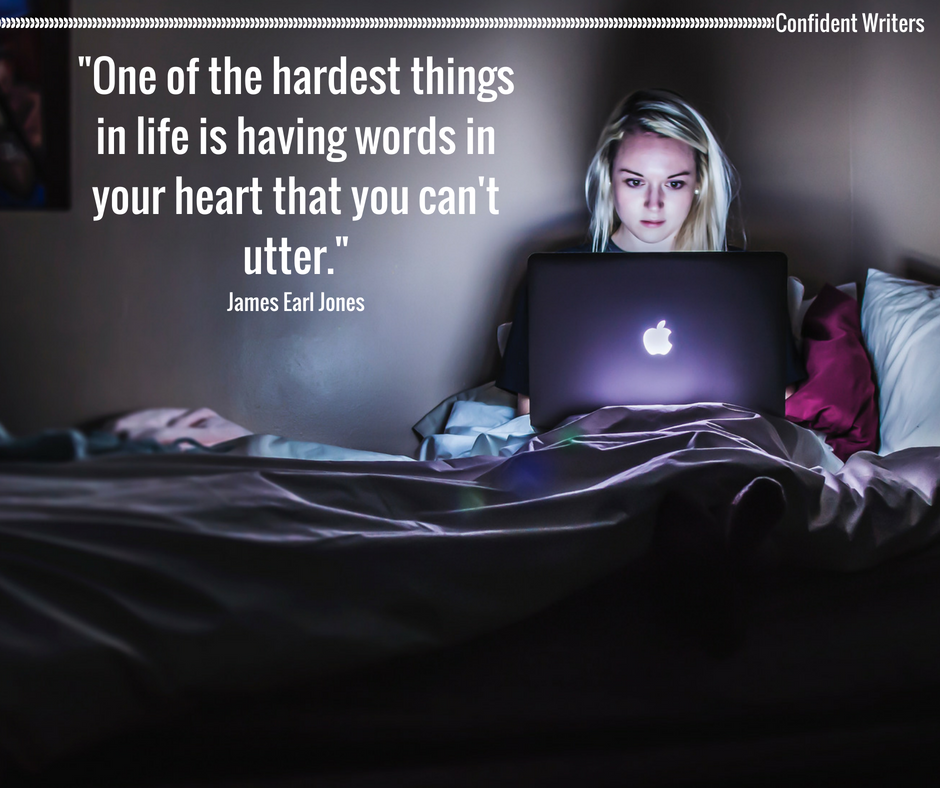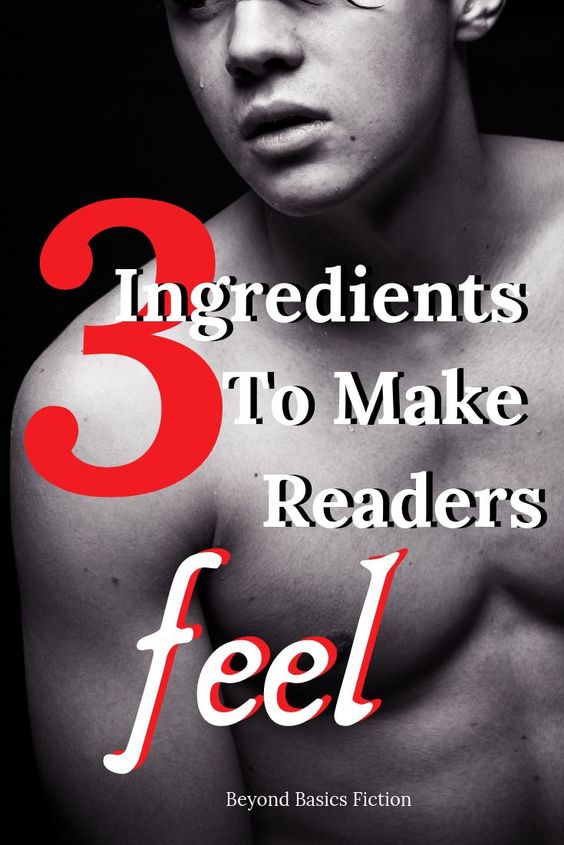
Will deep point of view work for you? Deep point of view is going to change your writing and even change how you read fiction, but it’s not a panacea to bestseller status. It’s just not. Deep point of view is an intermediate fiction technique that requires you to have a good foundation in basic writing skills to make it work for you.
Deep point of view is lipstick on a pig if you don’t understand story structure, character arc, tension, conflict, scenes and sequels, hooks, avoiding adverbs, passive voice, point of view, and maybe a few others that aren’t coming to my mind at the moment. If you are just starting out, focus on learning these things first. I promise you, it will save you hours and hours of editing and disappointment.
Why? Because these basic things will be all people point out to you when you’re starting out. They will see these beginning mistakes and shrug. This is a good writer, but they’re not ready to be published yet.
Been there.
However, if you’re past all those things and you’ve been writing for a bit then you’re probably ready for deep point of view. You’ve probably heard about deep point of view already and maybe wondered what it’s all about. This technique is particularly popular among any of the romance genre writers, but is growing in popularity across all popular fiction categories including fantasy, thrillers, crime, sci-fi, historicals, and others.

What Genres Does Deep Point Of View Work For?
Deep point of view brings the reader in super close to the emotional heart of a story. While action is conveyed through deep point of view effectively, the power of deep point of view is how a character feels (hence the prevalence of it being used in romance genres).
So whether your character has escaped her kidnapper, is the target of a serial killer, is parsing out whether that hot guy is worth the trouble he’s causing, is hunting for a missing child, is alone on a piece of driftwood after the Titanic has sunk, or facing down a dragon — how the character feels and how the events of the story impact their heart is where deep point of view really grabs readers by the throat and won’t let go.
What this means practically is that your story might be well-suited to using deep point of view throughout the whole novel, or is better used strategically for key scenes. It can be boiled down to a very simplistic view of character driven vs plot driven. However, every story is unique and the emotional tension might be a key aspect of a plot driven story. Only you can answer this question, and the answer might vary from one novel to another.
In a thriller, if the story is written from the victim’s POV, deep point of view could be very effective for the entire novel because his terror and self-doubt and rage are what you want the reader to connect with (the story is character driven). If the POV is the detective hunting the killer, then the concrete details of the investigation (plot driven) are the main plot drivers so using deep point of view for key scenes – like the aftermath of the discovery of a new victim, the night off when the detective chooses to drink herself into oblivion to avoid the emotions flooding her senses – could be very impactful for readers. These are trends I’ve observed, but it is overly simplistic. I think deep point of view can work for any kind of novel.

Can I Use Deep Point Of View With First Or Third Person?
Not all first person stories are written in deep point of view. I used to think that writing in first person nessicitated using deep point of view, but that’s not the case. How deep you want to delve into the emotional heart of a character and how close the reader feels to being IN the story, is the pertinent question to ask.
Deep point of view can work in either first person or third person. I’ve seen deep point of view used for one POV character and not another. I think the main point is to be consistent. If you begin writing a character in deep pov then keep that going. If you’re only using deep pov for key scenes, then keep doing that – for the whole novel.

3 Keys To Success With Deep Point Of View
Be Realistic And Authentic
Between the work from students of my Method Acting Class, submissions in my 5 Day Deep Point Of View Challenge on Facebook, and comments from readers of my Method Acting For Writers book, I’ve come to see that some writers don’t care about being realistic or authentic with emotions.
From time to time, most writers realize they’ve written a character who is being irrational, lacks focus or goals, or doesn’t face the consequences of their behavior — and we revise. We want to do better. But I’ve also encountered many writers who don’t care. They have an end goal in mind – a happily ever after or whatever, and they don’t care if the journey to get there feels real or authentic to readers. This is THEIR story and they can do what they like.
The problem with that attitude is that if these flaws are evident in your character in a shallower point of view, deep pov will only point a spotlight on them. Will there be readers who don’t care if a story is well-written or authentic? Yeah.
I’m not content to write those kinds of stories. I encourage all my students to strive for more than that too. I want to write the kind of story that impacts readers, makes them feel, is a story they want to revisit over and over — not just be an afternoon’s fling and never thought of again.
Commit To Excelling At Craft And Writing The Best You Can Write
If you want to write in deep point of view, commit to learning the strategy. Half-assing it will not create the effect you’re hoping for. Deep point of view is about so much more than avoiding distance words or telling.
Many of us are tempted to skim over details for a few common reasons. We don’t know the character well enough to know what they feel, why they feel that way, or what the impact of that emotion is on their character or actions. Sometimes we’re writing about an emotion or event that hits a little too close to home and we’d just rather skim over the details and get back to the story. If that’s the case, change the story event. You’re the author. You’re allowed to change things like that and still get your character to feel a particular way. Sometimes you have to put the story aside for a time until you’ve found some healing and perspective for yourself first.
Be mindful of your own mental health though. We’ve all read stories of actors who took method acting a step or two too far and paid some heavy mental health consequences as a result. Be kind to yourself. Take a break when needed. Talk with a friend, spouse, or therapist. Hey – athletes don’t hestitate to go to physio, a chiropractor, or massage therapist if it will help their performance. If your trade is writing emotions with authenticity and realism, then talking to someone who’s an expert on those things is a business expense and those experts are part of your support team.

Be Strategic
Know what effect you want to create in any given scene, where you want the character to go/feel/do as a result of any scene, and use the best tool for the job. This is hard if you don’t know what tools you have at hand or how to use them.
There are troves of blogs out there excusing telling without explaining how to use it strategically. There are blogs that only repeat the basic foundational steps for writing in deep point of view – they offer the top drawer tools in a tool box and neglect to mention all the bottom of the box tools you also need or have at hand. Sure, you can put on base boards with a hammer and nails, but a pro is going to use a nail gun. Learn the pro tools for a better overall finished effect.
Been told you should learn Deep Point Of View? Had an editor or critique partner tell you to “go deeper” with the emotions in your fiction? Looking for a community of writers seeking to create emotional connections with readers? Check out the Free Resource Hub and then join the Going Deeper With Emotions In Fiction Facebook group.
Lisa, while I love your page, the concept of Deep Pov and the premise of going deeper with emotions in fiction…as a professional degreed actor for 45 years and an acting coach for over 17 years, I would rather take a whipping with a garden hose than to watch ‘Method’ acting, much less use it. That being said, I believe as a writer and as an acting coach that the imagination is far more powerful than Any experience a person might have.
I think creating body language, eye contact, and what is Not said in a scene is quite effective in conveying the desired emotion. One thing I found missing in your article is the use, or non-use of ‘tags’. To me, every time a tag…he said, asked, commented, ect…is used, you take the reader out of the story because it’s the author speaking. The use of action lines and character voice is far more effective in maintaining the story flow/meter and its concurrent emotional roller-coaster.
I just finished novel #35 two days ago and I could have added an Epilogue but the final scene/line was so emotional, I, and my beta readers, felt anything else would be anticlimactic and it would be best to write a sequel…which is what I’m doing. A prominent writer friend of screenplays and novels told me when I first started writing…”Kenny, you’ll never finish a novel. You can always continue the story or add this or that, but it’s best most of the time to just walk away after the climax and start another.” That’s my story and I’m sticking to it.
Good points. I’m not using the term “Method Acting” in the way that actors would use it. In deep pov, because the point is to create an immersive effect, the concept of method acting seems to resonate. Because you remove the author voice and write it as though the character is living out the story in real time. So, the idea of “becoming this character” is one I try and teach. Don’t write the scene as the writer observing the story, write it as though you’re the character LIVING out the scene.
I can see how – to actors – my use of that term would be confusing. I probably will rebrand things and not use that.
Good thinking. I see ‘method acting’ and it’s like running your fingernails down a blackboard.